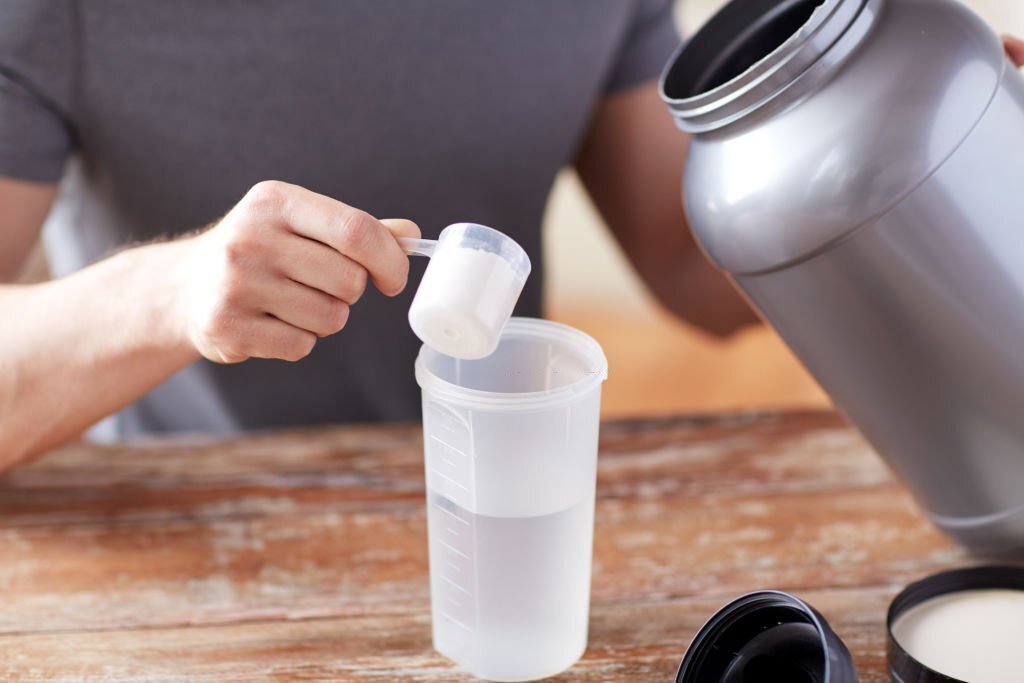Boost your muscle growth or improve your performance: the effect of creatine is marvelous. But how much Creatine is safe and effective to consume is usually still being determined.
Is 10g of Creatine too much?
10g of creatine in a single serving is considered excess and can lead to gastrointestinal distress. However, a study suggested that taking 5 to 20 g of creatine for up to 5 years doesn’t cause adverse side effects to healthy athletes. However, it depends on your size and health. The prescribed creatine doses range from 2 to 5 g per day.
Keep reading to learn more about taking 10 g of creatine and its consequences.
Is 10g of Creatine Too Much?
10g of creatine in a single serving is usually too much for more athletes leading to Gastrointestinal distress. However, it might not be too much for athletes with massive bodies. For average people, 3-5 g (14 mg/pound or 30 mg/kg) is sufficient. Excess creatine will either wash out or become creatinine, leading to side effects.
If you have less muscle mass, 10 g may be excessive. Such a large dose may raise the chance of adverse consequences.
Moreover, taking excess creatine in your body will wash out as your kidney can take that much only. So, taking too much more than recommended will be a waste.
What Is The Recommended Creatine Dosage?
The suggested dose of Creatine varies according to factors like body weight, level of training, and goals. Nonetheless, 3-5g of the supplement daily is usually advised. But generally, fitness enthusiasts prefer to follow the loading and maintenance phase to consume Creatine. It’s also referred to as creatine loading.
Athletes take 20-25 g of Creatine daily, divided into 4-5 equal doses, for 5-7 days during the loading cycle. This loading phase raises the muscle’s creatine levels quickly, promoting strength, power, and muscular endurance.
The maintenance phase starts after the loading phase. To maintain the increased levels of Creatine in their muscles throughout this phase, athletes take 3-5 g of Creatine daily, frequently with a meal.
However, a study suggested that athletes could achieve comparable outcomes by taking less Creatine – 3 g daily for 28 days, without the loading phase, depending on their weights.
Creatine loading can be a useful strategy for rapidly boosting Creatine in muscles. Still, seeing a healthcare professional or sports nutritionist is crucial before beginning any new supplement plan. They can assist you in determining the proper doses and identifying any possible hazards or advantages based on your particular needs.

Effects Of Taking Too Much Creatine
Excess creatine, like 10g daily, can have several side effects.
Gastrointestinal Distress
It is a common side effect of taking high-dose creatine. It can include symptoms like stomach pain, diarrhea, nausea, vomiting, and stomach cramps. The condition occurs due to the increased water content in the digestive system from taking creatine.
Bloating
Creatine draws water into your muscles, increasing water content in your digestive system and potentially causing bloating. Bloating can be uncomfortable and may interfere with your daily physical activities.
Kidney Issue
The kidneys are responsible for metabolizing and excreting creatine from the body. High doses of creatine may stress the kidneys excessively, potentially causing kidney diseases over time. However, studies suggest that creatine is safe and rarely causes adverse effects on the kidneys and liver.
Weight Gain
Excess creatine can lead to weight gain; however, it’s not increased fat. Instead, it’s the excess water content in your muscle that causes the increased body weight.
Safety Precaution While Taking Creatine
To get the maximum outcome from creatine supplementation, maintain some safety rules.
Choosing reputable brands and products
Not all creatine supplements are created equal; some may be of lower quality or purity than others. Choosing a high-quality product ensures you get the most supplementation benefits with minimum side effects.
Proper hydration
As creatine causes water retention, stay properly hydrated when taking creatine. However, creatine may not cause dehydration; water retention may lead to it. Drinking plenty of water throughout the day, especially before and after exercise, can help prevent dehydration.
Cycle on and off creatine supplementation
It’s recommended to cycle on and off creatine supplementation. Taking creatine for a period of several weeks, followed by a period of several weeks off, before starting supplementation again. It can help prevent the body from becoming too reliant on creatine.
Consult An Professional
Creatine is not suitable for all, especially people with pre-existing medical conditions – kidney or liver disease. So, a healthcare professional can help determine whether it is safe and appropriate for you to take creatine. He can also suggest the right dose for you.

Final Words
Is 10g of creatine too much?
Generally, 10g of creatine for daily intake is considered too much as it may cause several side effects. However, the creatine dosage depends on size, muscle mass, need, and health condition. While 3 to 5g is enough for many, athletes with a huge body and muscle mass over 100kg may need 10g.
Consulting with a healthcare provider before a new supplement routine is usually encouraged. For more info, visit our blogs.

I started my professional career as a sports medicine consultant in Rola, Missouri. My primary role was to suggest suitable supplements for my patients according to their pre-existing conditions and lifestyle goals. I believe a healthy lifestyle is the most important if you want to make your life really meaningfull.


